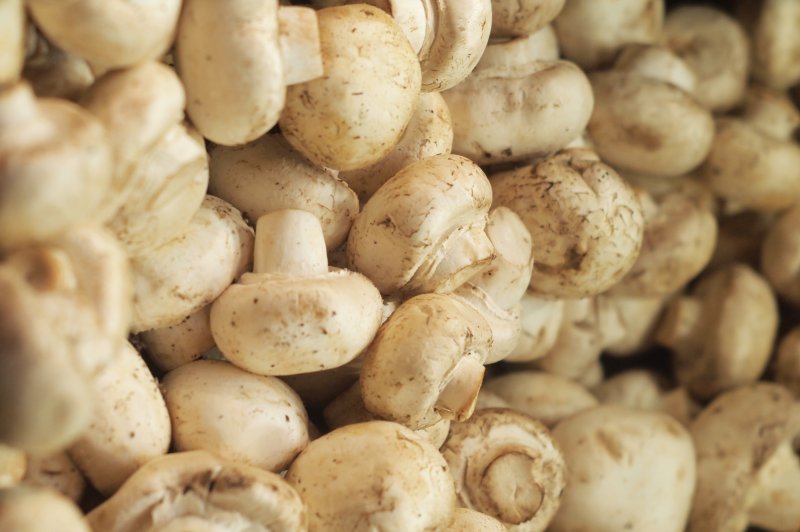Mushroom sales were up nearly 38 percent during the week of May 3 compared to a year earlier, according to the Chicago-based analytics firm IRI. Photo by Don Johnoghue/Pixabay
EVANSVILLE, Ind., May 15 (UPI) -- Mushrooms are in short supply at grocery stores across the country this month due in part to a continued spike in sales during the coronavirus pandemic.
Retail mushroom sales were up 37 percent during the first week of May over the same time last year, according to the Chicago-based data and analytics firm IRI. Throughout April, sales were up more than 33 percent.
During the same time, however, the widespread closure of restaurants and institutions means food service sales have dropped to almost nothing.
As a result, many growers who were losing food service contracts scaled back their production during the final weeks of March, said Lori Harrison, a spokeswoman for the Pennsylvania-based trade groups the American Mushroom Institute.
"Our guys were looking at how to 'right size' their operations," Harrison said. "They weren't sure at that point what retail was going to do, there was basically no food service and they were being told not to have workers too close together."
Growers made widespread decisions to decrease production about eight weeks ago. Mushroom growth cycles are between 6 and 12 weeks.
That means that smaller crop now is hitting store shelves.
"The COVID-19 conditions that growers were responsibly adapting their cycles to in mid-March continue to impact mushroom availability today," Rachel Roberts, the president of the American Mushroom Institute, said in a statement.
It is too soon to know what this shortage means for consumer prices, said Eric Davis, a spokesman for the Mushroom Council, an industry group based in Redwood Shores, Calif.
The council's most recent price data is for the four weeks ending March 22 -- just a week after many governors began to close restaurants and issue stay-at-home orders. During those four weeks, consumer prices increased a modest 4 percent.
"It only captures a fraction of the impact of COVID-19," Davis said.
With restaurants starting to reopen -- and a clearly established high retail demand -- growers are increasing production again, Harrison said.
The American Mushroom Institute expects the shortage to persist for the next 6 to 10 weeks while the new crop matures.
"It just takes time for the mushrooms to actually grow," Harrison said. "It's not like a light switch you can turn on, and all of a sudden there are mushrooms. But this shortage is not going to last forever."















